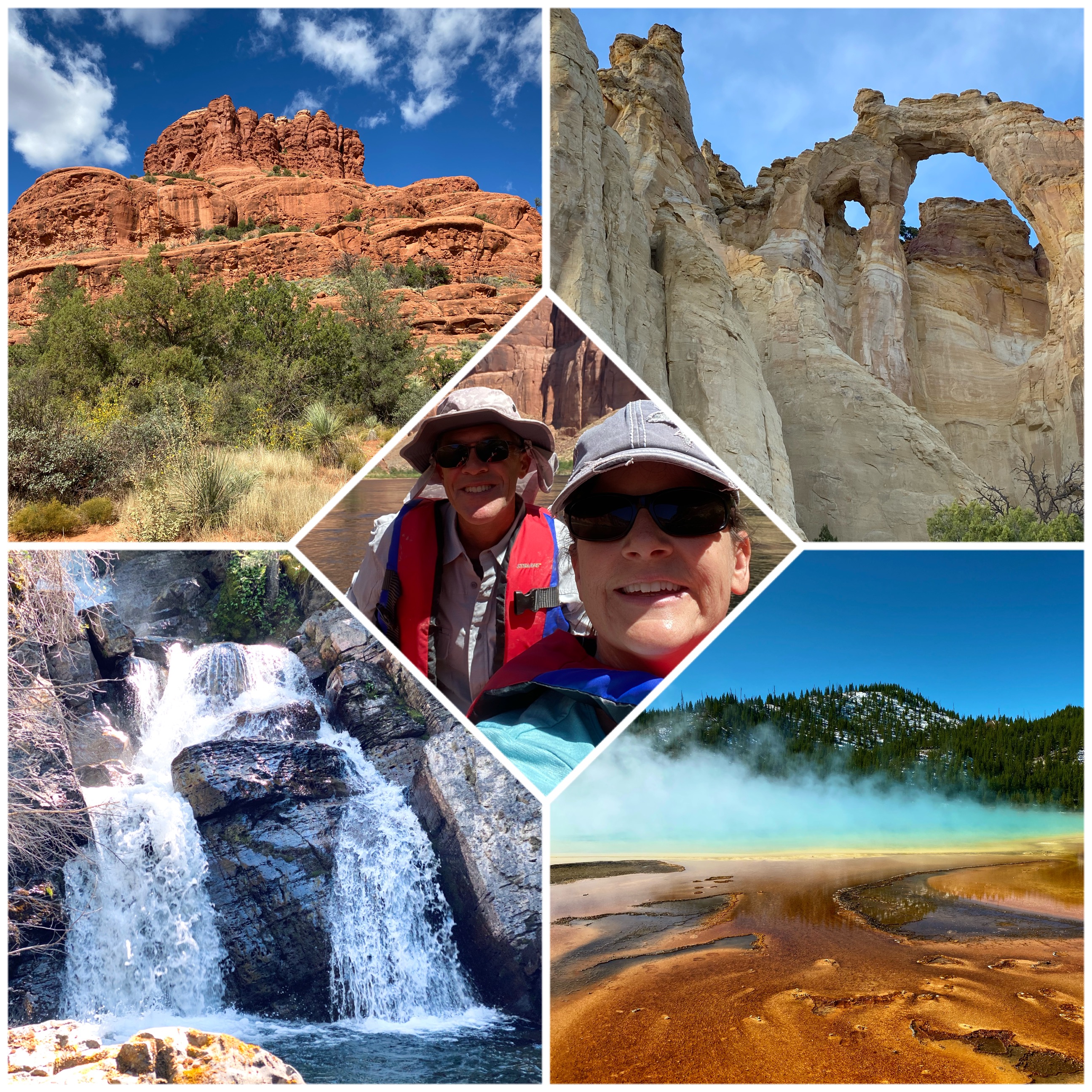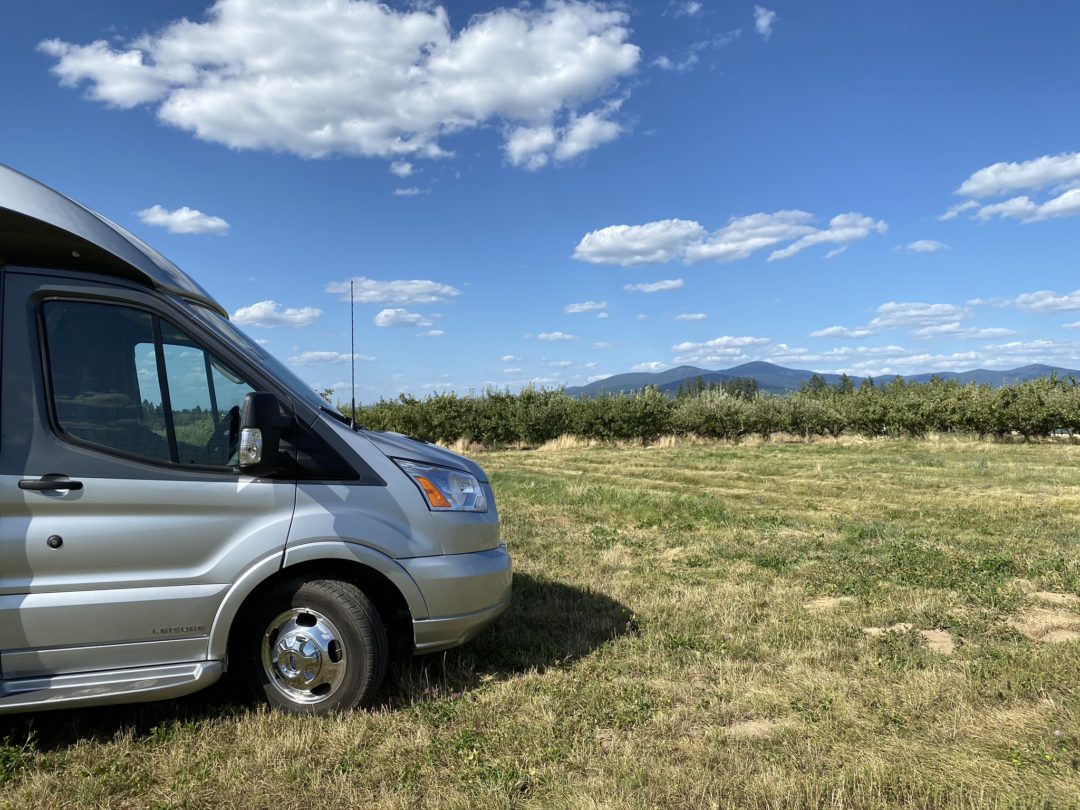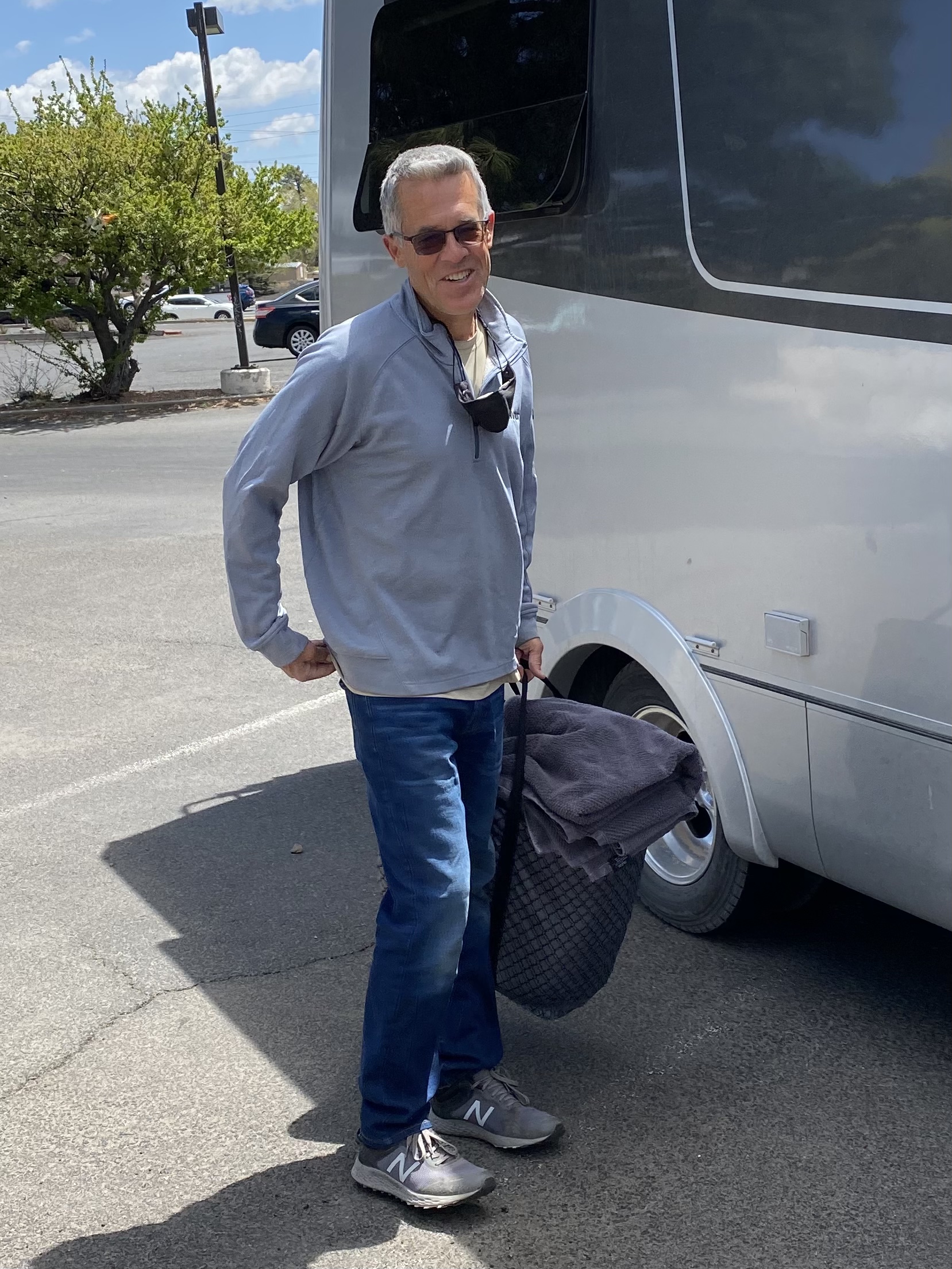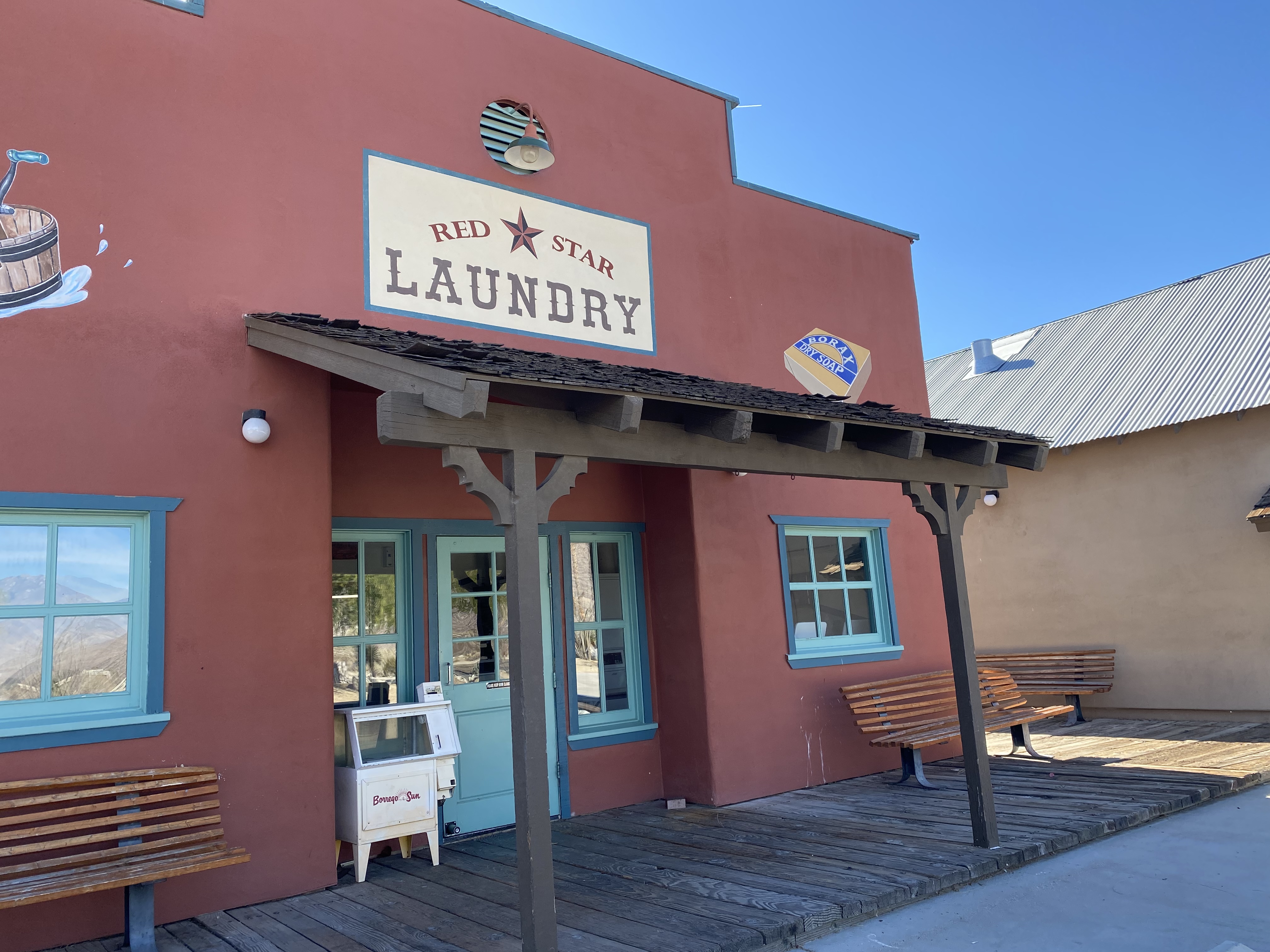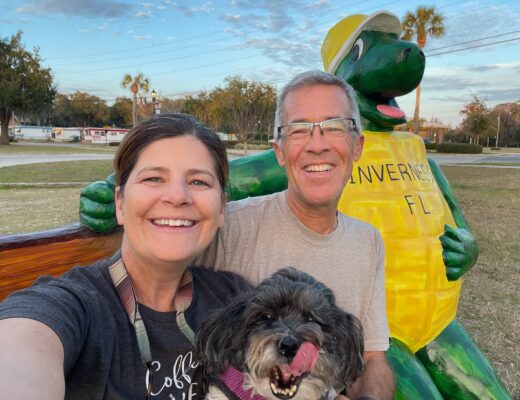Selling your house, leaving your job and downsizing from over 2000 sq. ft. to about 200 sq. ft. brings with it some excitement but also some worry.
Now that we’ve been in the RV full-time for over a year, here are some things we learned:
- You need a lot less stuff than you think you do and minimizing is life changing. There is tremendous freedom in purchasing and living intentionally.

- Boondocking is not as scary as it sounds. RV parks and campgrounds have their place, but some of the prettiest spots we’ve stayed have been on National Forest Service and Bureau of Land Management lands.
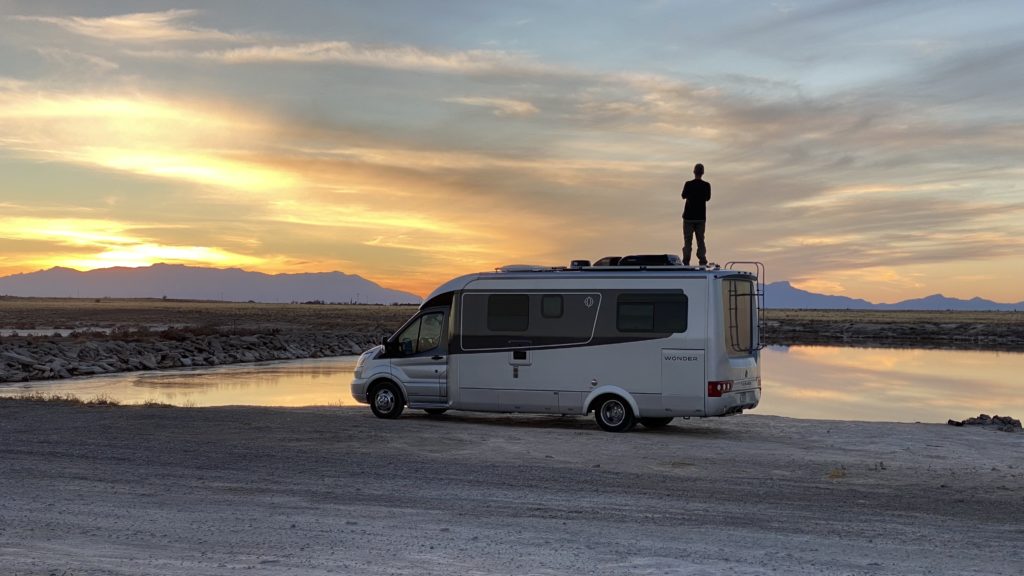
- You can get by with a lot less water than you think. RVing forces you to manage your resources (water, electricity, garbage) because they’re finite (carried with you). If we can do everything but laundry with just 35 gallons of fresh water every 5 days, you can likely cut back as well.
- Dentists, stylists, vets and groomers are hard to arrange on the road. These services are in high demand and booked weeks to months in advance, which is tough when you’re not only moving town to town but likely state to state in that time.
- RVing in “vacation mode” is not worth it. Trying to visit any area like you’re on vacation (taking in all the sites, eating local fare, and having that nightly cocktail) will lead to weight gain and burnout. We’ve found it’s better to pick your top 2 in an area and save the nights out for special occasions and time with friends like a normal person.
- Connectivity is still challenging, but a cell phone booster and good hotspot service plan can help. Despite how impressive the Sprint, AT&T, Verizon and T-mobile maps look, we’ve found that we use our WeBoost cell phone booster and our AT&T hotspot add-on plan a lot.
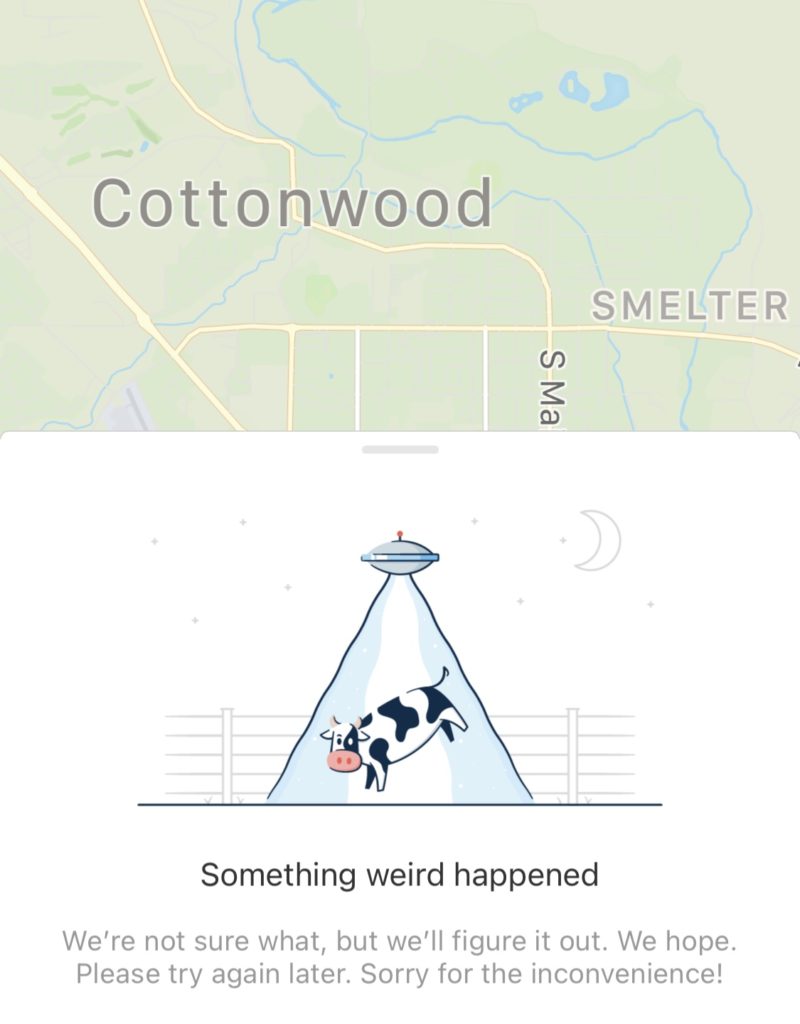
- Off-line / downloaded maps and apps are indispensable due to #6 above. Get the right ones (for travel, hiking, boondocking, and dump stations) and learn how to use them. Doug’s personal favorite and go-to map app has been “Gaia GPS”
- Never pass up a chance to dump waste tanks and get fresh water. Interestingly, fresh water can be particularly difficult to find sometimes.
- Campfires suck for full-timers. I understand that campfires are a treasured and valued part of the occasional camp outing, but smoke from all of those fires often blankets the campground and permeates the whole RV for several weeks (or at least until laundry day/dog washing day).
- Laundromats are actually fantastic! Sure we have to make a dedicated stop every 2 weeks, but we can wash everything we own (including rugs) in less than 2 hours. Now that’s good time management!
- Your highly regimented dog will be fine by developing a new routine that’s not location specific. Keep walking and feeding times consistent and he/she will go with the flow.
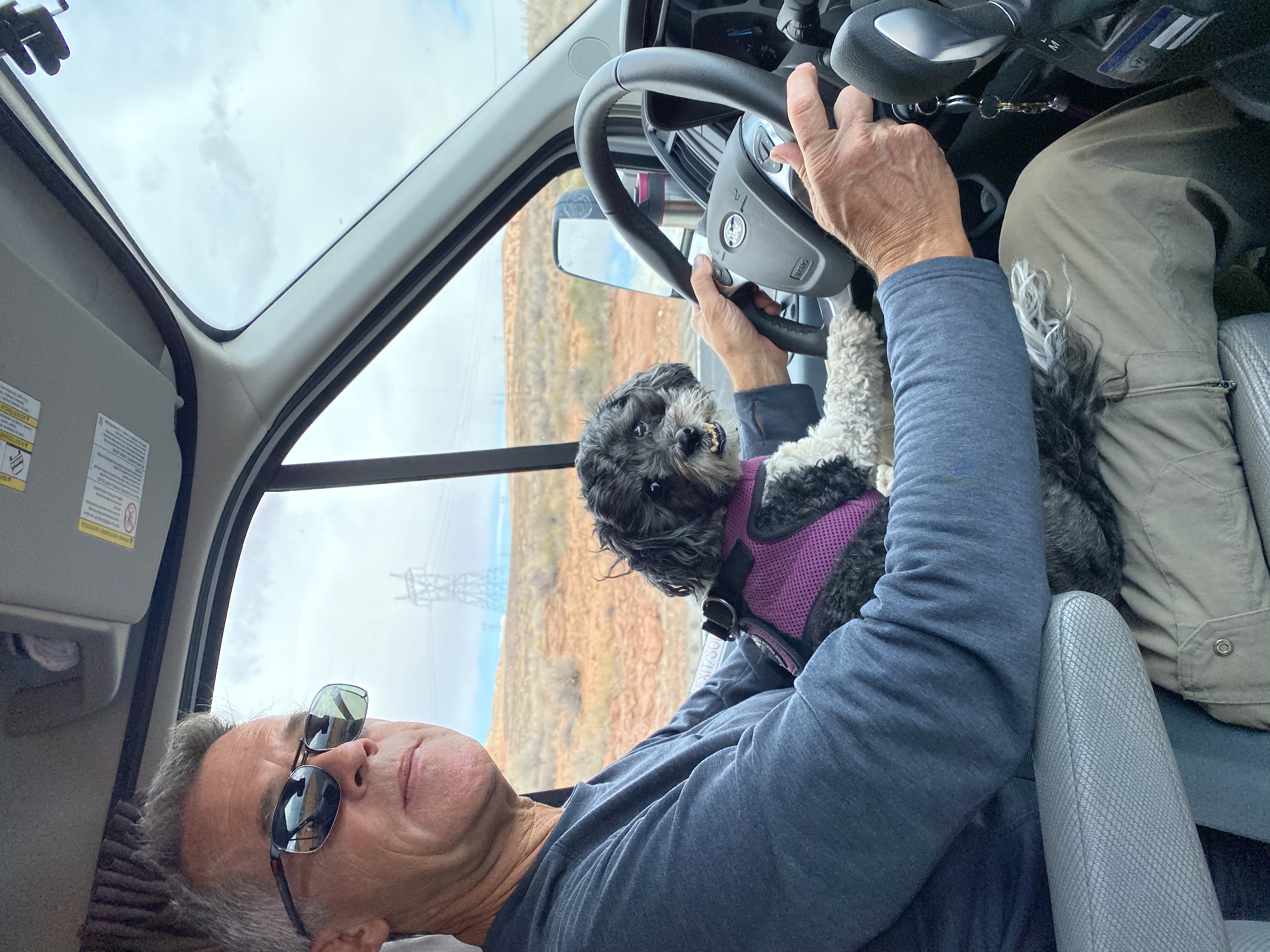
- Plan, plan, plan. Not every overnight spot is Instagram worthy but planning even 2 weeks ahead will help. Also, you’ll be more likely to fit in the area’s best hikes and sightseeing. We also try to always have a backup site in mind if the location is full or we don’t like what we see when we arrive (though that seldom happens). Our go-to apps for camp site planning are Campendium and Google Maps (with the top selections added as waypoints to the Gaia map app).
- The rule of 3 (drive no more than 3 hours per day and get to your campsite by 3pm) works. A maximum drive time of 3 hours per travel day, at least for us, seems to set the best pace to make sure that we’re “enjoying the journey” versus focused on a particular destination. The 3pm stopping time ensures that we have a chance to explore our stopping place a bit (particularly if we’re just there for an overnight stay) and also allows some cushion if we find we have to switch to our backup place to stay.
- There’s no crying in baseball …or RVing. It’s not surprising that many hours in a small space followed by the need to select the “best” spot and maneuver a large vehicle at the end of the day lead to louder than intended “discussions” , but over time your communication will drastically improve. Soon, you’ll conquer mountains and fears; you’ll park, unpack and later pack in record time, with little or no conflict; you’ll dance your way through morning and evening routines in 200 sq. ft.; and even recognize when your partner just needs some space. In short, you’ll become an unstoppable team!
- Full time RV living isn’t for everyone, but it’s also not as complicated (or as crazy) as it seems.
